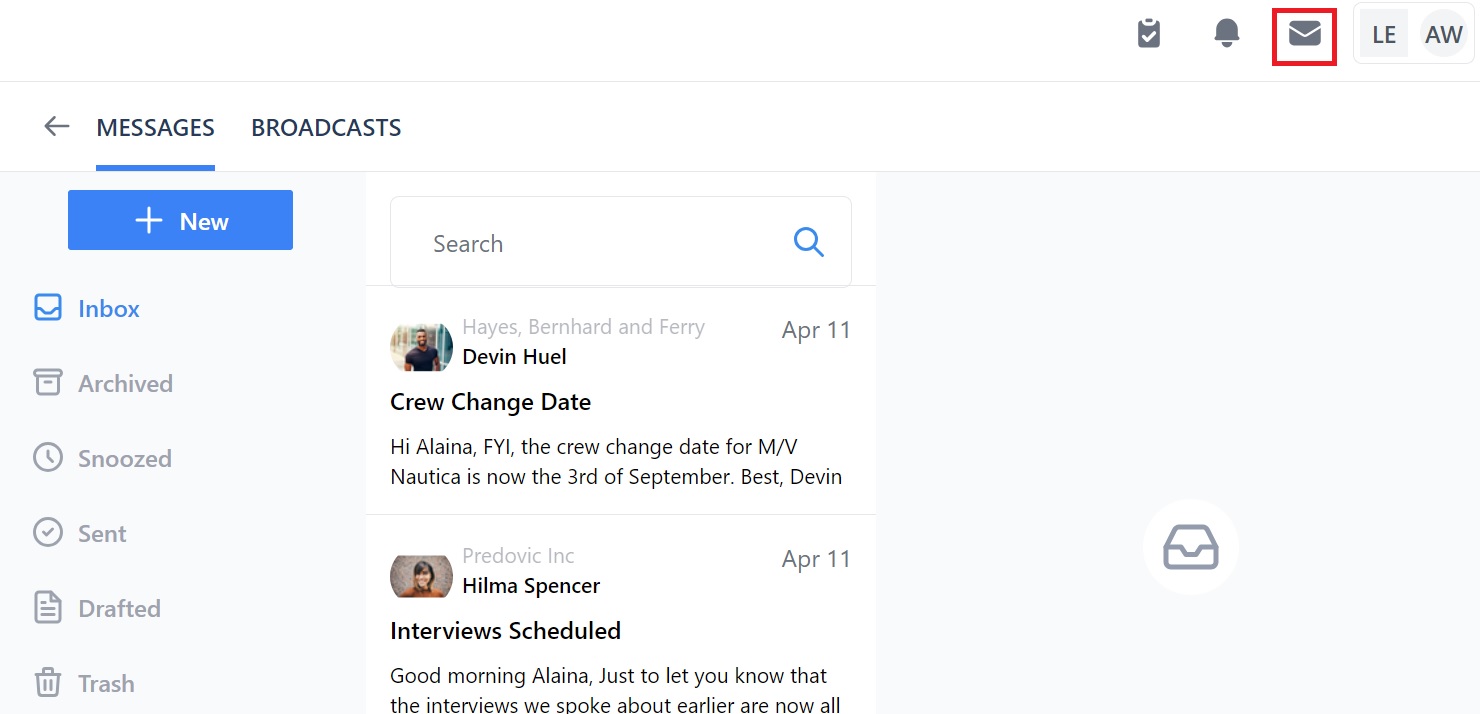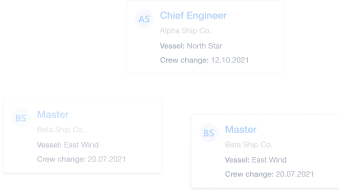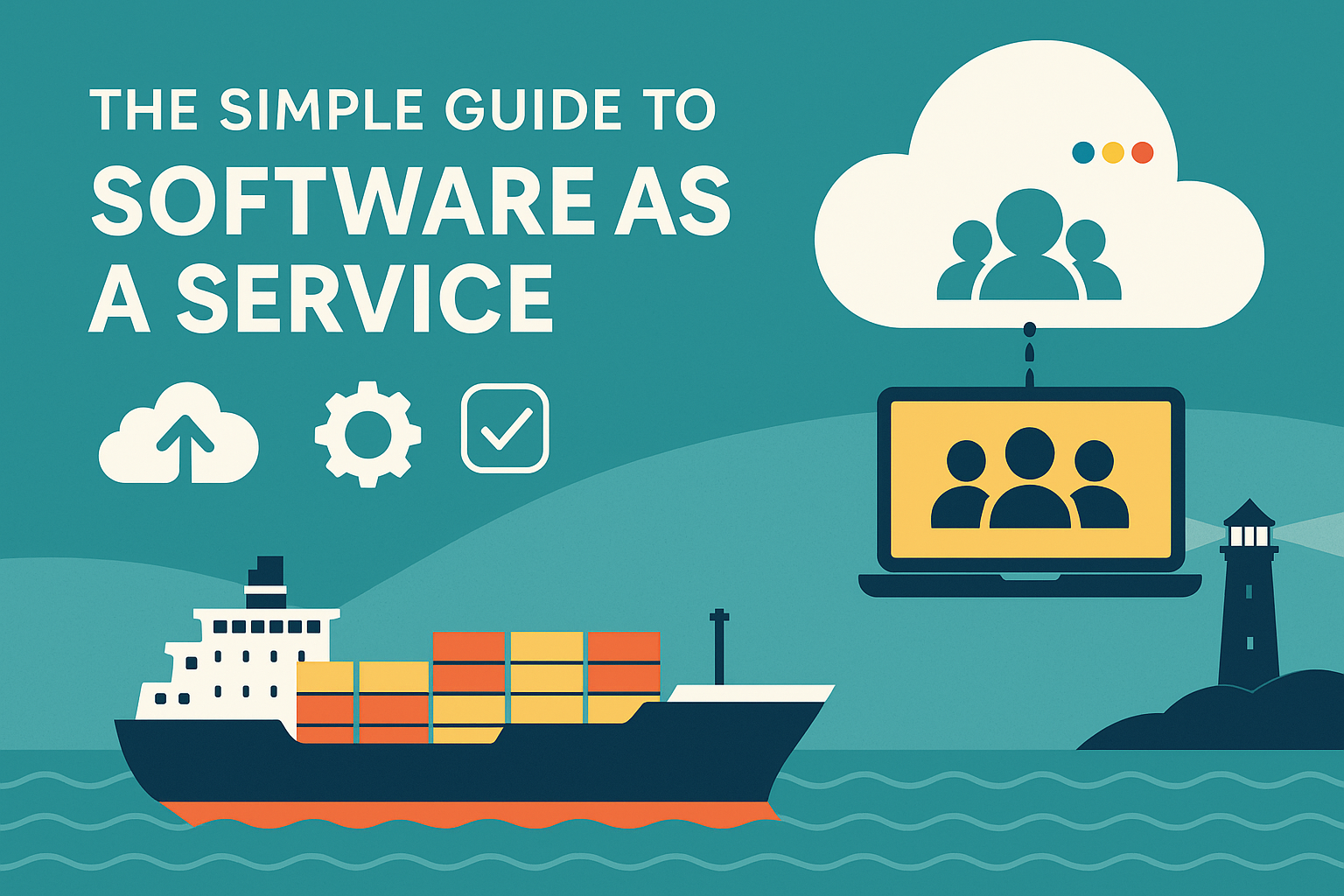Why Ghosting Candidates Harms Your Maritime Recruitment Ops

It’s no secret that candidates ghost employers all the time. In your small to medium-sized shipping company or manning agency, you’ve probably had your fair share of applicants to your seafarer jobs who’ve gotten halfway through the recruiting process and then - poof - suddenly disappeared without trace.
It’s annoying, frustrating, a waste of time - and costly.
But what happens when you, as an employer or maritime recruiter, ghosts your candidates?
Why you really shouldn't ghost your seafarer candidates in maritime recruitment
First of all, what actually is ghosting?
Initially a term associated with dating, specifically online dating, ghosting is when the person you are speaking to, be it romantically or professionally, stops responding to your messages, emails or calls.
They don’t give a reason. They just make it clear by their absence that they are no longer interested in anything you have to offer. Whether that’s a job or a relationship.
What is ghosting in recruitment?
In maritime recruitment, or any kind of recruitment, ghosting someone doesn’t refer to not responding to a seafarer resume or an application. It applies to when a candidate has started to move along your recruitment pipeline.
For example, you’ve contacted the applicant after liking the look of their CV, they’ve completed and passed an English Test and, to them at least, it feels like being lined up for your next crew change is practically a certainty.
However, as a busy recruitment officer or stressed out manning agent, you have a million plates to spin, dozens of crewing positions to fill and change over dates to meet, and a pile of resumes on your desk that is looking more and more overwhelming every day.

Read more: 8 Ways to Stop Ghosting Seafarers in Maritime Recruitment
And so, that seafarer falls by the wayside and becomes just one more thing on your to-do list - eventually, and inevitably, dropping off that list once the change over date passes and you’ve already found an alternative officer or rating.
The thing is, to you, there may be plenty more Able Seamen, Bosuns, First Engineers or Wipers where they came from. But to them, your vacancy - that you’d already started the hiring process for - was a lifeline. Their next contract. Their next salary.
Why you shouldn’t ghost your seafarer candidates
Asides from it not being fair on the person at the other end of the recruitment process, suffice to say, if you’re leaving seafarers high and dry when they’re counting on you to provide them with an income, it’s not doing your shipping company or manning agency’s reputation any good.
If you get into the habit of ghosting candidates, you’ll pretty quickly get a name for yourself as an employer or crewing agent to avoid.
And that’s going to make filling your positions even more difficult than it already can be.
What are some of the reasons employers ghost candidates?
There are any number of reasons why someone working in maritime recruitment might ghost a candidate. Ghosting is not necessarily malicious (although try telling that to a seafarer who is desperate to get back to work!) and is more often than not the result of disorganization within the company or department.

For example, ghosting candidates can occur when:
- The recruitment officer or manning agent is overwhelmed with the sheer amount of applications they received
- The company’s method of reading, storing and accessing seafarer resumes is chaotic
- There’s simply a better candidate in the recruitment pipeline and the employer doesn’t want to be the bearer of bad news
- There’s a breakdown in communication between the employer and the manning or crewing agent
So if you want to avoid getting a bad name for yourself within this tightly knit industry, and you’re aware that a number of candidates have been ghosted either by yourself, or by other members of your recruitment team, what steps do you need to take to correct the issue?
Let’s take a closer look at the reasons why mannings and recruitment officers ghost seafarers and look at how you can get back on track.
How to avoid ghosting your seafarer candidates
We’ll look at each of the above hypothetical reasons, as listed above, and match them with an actionable solution that will get your maritime recruitment team firing on all cylinders once again.
You’re overwhelmed with the amount of applications received
In maritime recruitment it can sometimes feel like you can’t win. You have 1001 applications for your Deck Cadet vacancies and…two for your Fitter jobs.
But whatever position you’re hiring for, you need a way to deal with resumes in an orderly fashion that takes the stress away from sifting through so many applications.
The solution: Martide’s maritime recruitment platform streamlines applications by letting seafarers apply directly through our website or our dedicated seafarer job app. Talking of which, don’t forget to tell your crew to download the app from the Apple App Store or from Google Play!

All applications to your jobs will then be added to your candidate database where you can use filters to quickly sort and identify the seamen and women who would be suitable for your vacancy.
This means you don’t have to sort through candidates who don’t have enough time in rank, who don’t have experience on that vessel type, or who are unavailable for your embarkation dates etc.
What this means is that you and your team are less likely to be overwhelmed, and will have more time to process candidates all the way through the pipeline, or reject them within the system, if you’re no longer interested in them.
Your company’s way of storing and accessing resumes is chaotic
Still using manual processes to receive, store and file resumes and application forms? (And even contracts and documents, come to that.)
It’s time to ditch the filing cabinet and digitize your paperwork to make it far more convenient for everyone who needs it to gain access when and where they need it.
The solution: Using a maritime recruitment and crewing system software solution is key if you want to streamline your operations and wrestle back control over your recruitment process.
Integrated maritime recruitment is the way forward and by storing your documentation centrally, and securely, you will ensure there is no more physical hunting around the office for missing forms, applications, CVs, contracts, copies of seamen’s books etc.

Not only does this give you far more time to spend on the important things, like sourcing qualified seafarers, it also gives you bandwidth to tick smaller tasks off your list - such as telling seafarers you’re no longer interested in them and that they won’t be progressing to the next stage.
And needless to say, storing your paperwork online using a security conscious software platform (such as Martide’s) is far safer and will help you adhere to strict industry regulations.
There’s a better candidate and you don’t want to be the bearer of bad news
We know. It sucks having to tell someone they don’t have the contract that they were so desperate for because someone better came along. But it’s a fact of (recruitment) life.
It can be all too easy to let the conversation slip if you’re a) already busy and b) not someone who particularly enjoys being the bearer of bad news.
The solution: Send a candidate rejection email to any unsuccessful applicants. We hear you, though. You don’t have time for that. Well, you will do if you take onboard the two time-saving solutions we’ve listed above and if you pre-write your rejection emails.
All it takes is a few minutes to sit down and write your candidate rejection email template and then it will be good to go whenever you need to let someone down gently.

Even better, this ensures that you don’t burn bridges with seafarers who may be ideal for another position but for whatever reason, just weren’t for this one. That way you can add them to your seafarer talent pool to make filling your next vacancy easier and quicker.
And, when you use Martide’s inbuilt messaging system to send your candidate rejection emails you can also take advantage of our handy Broadcasts feature which lets you send more than one email at a time to multiple candidates. More time saved, and less candidates ghosted!
There’s a breakdown in communication between you and the manning agent
Ah, the classic breakdown of communication. We get it. People are busy and sometimes it’s just impossible to get hold of the person you need to speak to.
But don’t let your job applicant hopefuls be the ones to bear the brunt of this. It’s not fair on them, it won’t do much for your relationship as an employer with your manning or crewing agent, and it will make life more stressful for you in the long run.
The solution: As we’ve just seen, Martide’s messaging inbox is a convenient way to stay in touch with seafarers and candidates - whether you’re messaging them one at a time or in a group.

What our inbox is also great for is keeping in touch with manning agents. If a manning agent you work with is in the system, you’ll be able to shoot them a message without having to leave Martide.
This will make it easier to stay in touch with acquaintances as it enables you to send a message there and then without having to make a mental note to send them an email later when you’re back in your Gmail or Hotmail account.
Again, you can also send Broadcast emails to your manning agencies, or communicate with them one on one.
Don’t be that employer who ghosts candidates
No one likes that employer! It’s not fair on genuine candidates who are seeking employment or contracts. It gives your small to mid-sized shipping company a bad reputation, and it makes your life harder as your pool of candidates shrinks as seafarers become more and more reluctant to apply for your job vacancies.
Instead, why not talk to us here at Martide. Our software as a service was built specifically for the maritime industry - in particular for recruitment officers, crew planners, and manning agents - and can help you take your operations to the next level.
We offer a sensible pricing structure, no strings attached demos, and round the clock support. Oh, and did we mention, it’s free to post your seafarer and offshore jobs on our website?
Get in touch with us today and let’s stamp out ghosting in maritime recruitment together!

Eve Church
Eve is Martide's content writer, publishing regular posts on everything from our maritime recruitment and crew planning software to life at sea. Eve has been writing professionally for more than two decades, crafting everything from SEO-focused blog posts and website landing pages to magazine articles and corporate whitepapers.
UK

